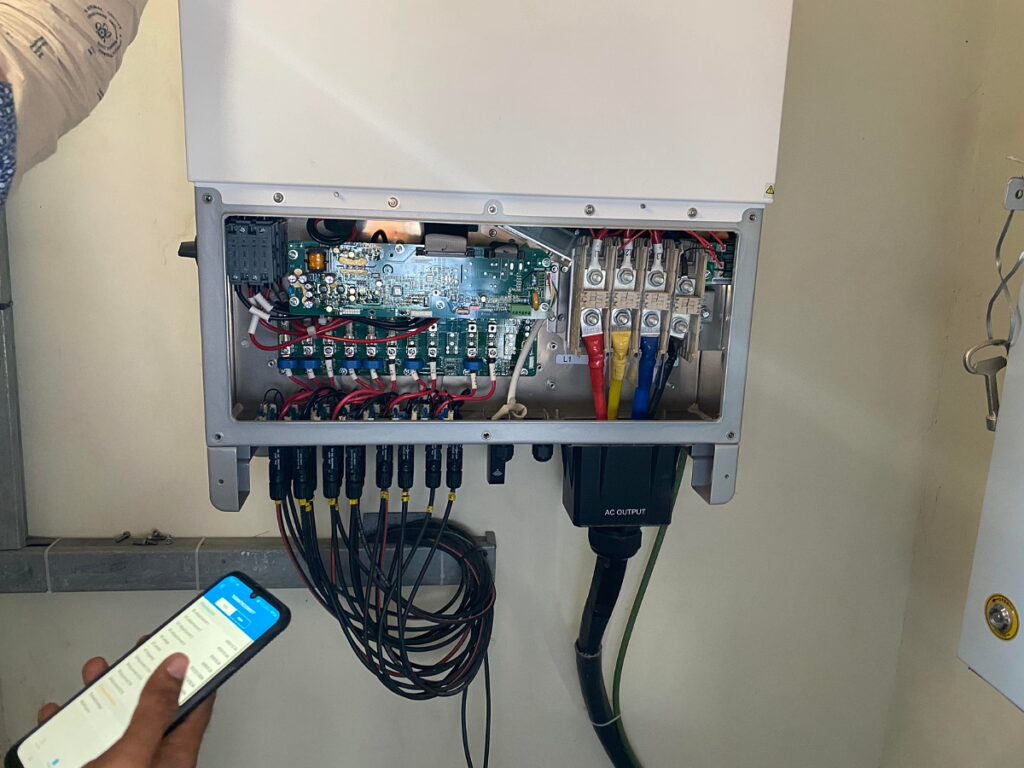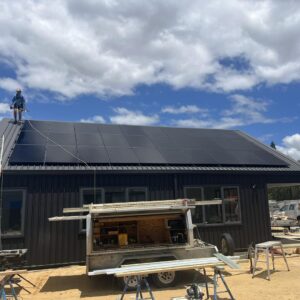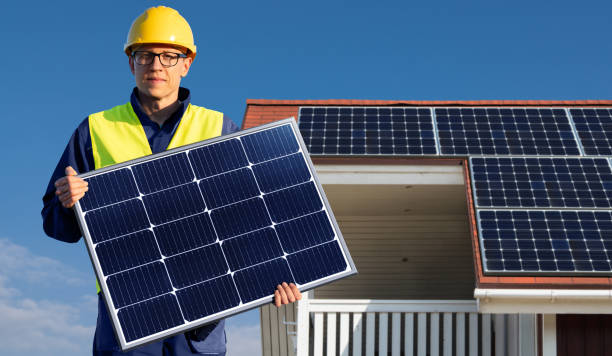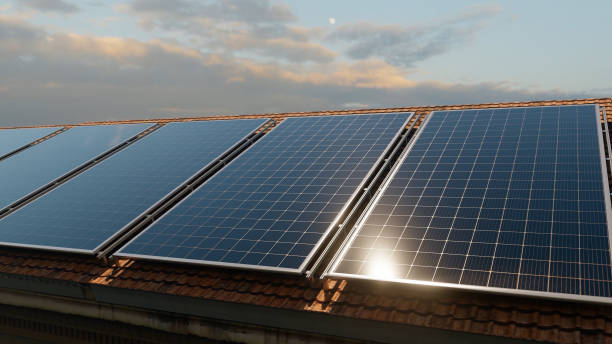As solar power adoption grows rapidly across Western Australia, more homeowners are exploring battery storage solutions to maximise their renewable energy use. One common technical question that arises is: “AC coupled battery vs DC coupled, which system is right for my home?” Understanding the differences between these battery types, their installation costs, flexibility, and maintenance requirements can help you make the best choice for your energy goals and budget.
This article provides a detailed comparison of AC-coupled and DC-coupled battery systems, with a focus on how these technologies fit into WA’s solar landscape. Whether you’re planning a new solar-plus-storage installation or considering a system upgrade, this technical breakdown will help you make an informed decision.
Understanding AC-Coupled and DC-Coupled Battery Systems
At a fundamental level, the difference between AC-coupled and DC-coupled battery systems lies in how the battery interfaces with your solar inverter and home electrical system. Both systems require well-maintained solar panels to perform optimally; for practical tips on keeping your solar investment in top shape, explore MaxSolar’s solar panel maintenance advice.
1. DC-Coupled Systems connect the battery directly to the DC side of the solar inverter, sharing the same power source as your solar panels.
2. AC-Coupled Systems use a separate inverter for the battery, connecting on the AC side of your electrical system, parallel to your existing solar inverter.
Both systems convert and manage power differently, which impacts efficiency, installation complexity, cost, and expandability.
How DC-Coupled Systems Work
In a DC-coupled setup, solar energy produced by your panels flows into a hybrid inverter that handles both solar conversion and battery charging. Excess solar power not immediately used in the home charges the battery directly on the DC bus. Later, when solar production dips, the stored DC energy is inverted back to AC to power the home.
This integrated design often results in higher system efficiency because energy conversion happens fewer times, reducing losses. DC coupling is typically recommended for new solar installations where batteries are planned from the start.
How AC-Coupled Systems Work
An AC-coupled system involves two inverters: one for solar panels and a separate inverter/charger dedicated to the battery. Solar panels convert DC to AC to power the home or export to the grid. Excess power then feeds the battery inverter on the AC side, which converts it back to DC to store energy.
AC coupling is common in retrofit situations where batteries are added to an existing solar system without replacing the original inverter. It offers easier installation but with slightly lower efficiency due to the extra conversion steps.
Comparing Installation Costs and Complexity
DC-Coupled Systems
1. Generally, the installation of a DC-coupled system is more involved, especially if it requires replacing an existing inverter with a hybrid model.
2. The upfront cost tends to be higher due to more advanced hybrid inverter technology.
3. However, integrated systems can reduce ongoing operational costs and improve performance, which helps justify the initial investment over time.
AC-Coupled Systems
1. Installation is usually simpler and more cost-effective for adding batteries to an existing solar setup.
2. Since the original inverter stays in place, the battery inverter is added alongside.
3. This modularity supports easier system expansion if your energy needs grow.
Both systems must comply with WA’s grid regulations and safety standards, ensuring your home remains connected without issues. The flexibility in installation makes AC-coupled systems especially appealing for homeowners seeking gradual upgrades.
System Expandability and Flexibility
One of the most important considerations for WA homeowners is future-proofing their solar investment. Both AC and DC-coupled battery systems offer different pathways for system expansion.
1. DC-Coupled systems can integrate seamlessly with hybrid inverters that manage solar and battery energy concurrently. However, expanding capacity sometimes requires upgrading the entire inverter setup.
2. AC-Coupled systems provide superior flexibility for adding more batteries or EV chargers independently of the solar inverter, supporting incremental upgrades.
For those prioritising flexibility and ease of adding components later, AC coupling can be the more attractive option.
Maintenance and Lifespan Considerations
Proper maintenance can extend the lifespan and maximise the performance of any battery system.
1. DC-coupled systems, with fewer components, often require less ongoing maintenance. But servicing hybrid inverters requires specialised expertise.
2. AC-coupled systems have more moving parts (two inverters), potentially increasing maintenance points but also allowing for isolated troubleshooting.
Battery lifespan is influenced more by battery chemistry and usage patterns than coupling type. For more information on maintaining your solar energy system and ensuring optimal performance, visit MaxSolar’s about page.
Which Battery Type is Best for WA Homeowners?
Choosing between AC coupled and DC coupled battery systems ultimately depends on your current solar setup, budget, and future energy plans:
| Feature | AC-Coupled Battery System | DC-Coupled Battery System |
| Best For | Retrofitting existing solar systems; gradual expansion | New solar installations; higher efficiency |
| Installation Cost | Lower upfront cost; simpler install | Higher initial cost; more complex install |
| Efficiency | Slightly lower due to extra conversions | Higher due to integrated design |
| System Flexibility | High – add batteries or chargers independently | Moderate – may require inverter upgrades |
| Maintenance | More components to maintain | Fewer components, but specialised service |
| Grid Compliance | Fully compliant with WA standards | Fully compliant with WA standards |
Both battery types provide excellent options for Western Australian homes wanting to maximise solar savings and reduce grid reliance.
Planning Your Solar Battery Installation with MaxSolar
Whether you’re upgrading an existing solar system or installing a new one, professional guidance ensures the right battery type is selected and installed correctly. WA homeowners can rely on MaxSolar, a leading provider of solar and battery solutions, for expert advice and personalised service.
MaxSolar specialises in tailored energy systems that suit WA’s unique climate and regulatory environment. Their experts help customers navigate decisions on hybrid inverters, coupling options, and system expansion, ensuring long-term savings and reliable performance.
Choosing between an AC coupled battery vs DC coupled system is a critical step in maximising your solar investment. Both systems offer unique advantages tailored to different needs, whether you’re retrofitting or installing new solar-plus-storage solutions in WA.
By understanding installation costs, system flexibility, efficiency, and maintenance requirements, you can select the battery type that aligns with your energy goals and budget.
For Western Australian homeowners seeking personalised advice and reliable solar battery installations, MaxSolar offers expert support through every stage of your renewable energy journey. To get started or request a consultation, visit the MaxSolar contact page.
FAQs:
What does “hybrid inverter” mean in battery systems?
A hybrid inverter manages solar generation and battery storage simultaneously, allowing smoother power flows and better efficiency, especially in DC-coupled systems.
Can I switch from an AC-coupled to a DC-coupled system later?
Yes, but it may involve replacing your existing inverter and rewiring the system, which can be costly and disruptive.
How do system expansions work with these battery types?
AC-coupled systems are more modular and allow adding batteries or EV chargers independently, while DC-coupled systems may require upgrading the inverter to expand.
Are there maintenance differences I should consider?
AC-coupled systems have more components, potentially increasing maintenance needs, but this also allows isolated repairs without affecting the entire system.
How do I contact a professional installer in WA?
For expert advice and installation, contact MaxSolar directly via their contact page.




